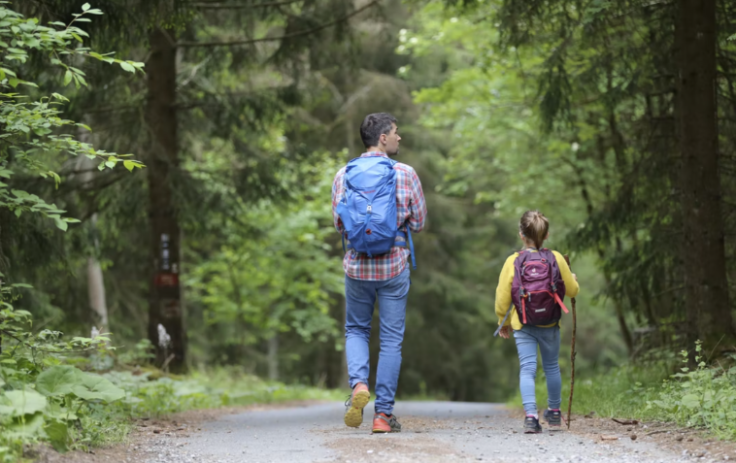Adventure Treks Sets Itself Apart From Other Summer Camps By Helping Students Grow Via Its Great 8 Outcomes

Many people have fond memories of summer camp, mostly involving making friends and engaging in various outdoor activities such as sleeping in tents or walking in the woods. While these activities are indeed fun and challenging, they also need to teach valuable lessons that, hopefully, will stick with teens even into adulthood.
Since 1993, Adventure Treks has served tens of thousands of young people in middle and high school by creating multi-week outdoor adventure programs that allow them to grow meaningfully, extending beyond the camp into their lives at home, at school and, eventually, their careers.
Adventure Treks' philosophy closely follows the research of the Partnership for 21st Century Learning program, where leaders of the world's largest technology companies agreed on the skills that are essential for graduates to succeed in the 21st Century. While technical skills, such as science, technology, engineering and mathematics (STEM), are important, these are being taught by the formal education system.
Rather, the key to success is the various non-cognitive and social traits that need to be strengthened and developed in teenagers through complementary learning activities such as summer camps. Sam Altman of OpenAi, a previous student of Adventure Treks, is a testament to this, "I learned more about teamwork and group dynamics than I have in any other setting. Equally as important, the days I spent with Adventure Treks are some of the best of my life."
To achieve this, Adventure Trek has come up with Great 8 Outcomes, which students between 7th to 12th grade can learn through its camps, which involve adventure, challenge, immersion in an outdoor and tech-free community, and interaction with exceptional role models.
These Great 8 Outcomes are:
- Communication
- Collaboration and social achievement
- Creativity
- Critical thinking
- Leadership
- Self-management
- Resilience
- Optimism
According to Adventure Treks' executive director David "Dmac" McGlashan, these skills are important to thrive in the rapidly changing and increasingly competitive world. Experts say that new communication methods, such as texting and social media messaging, are causing teens to lose focus, impeding the development of the very skills needed to succeed in a world filled with technology. This is especially evident in a post-COVID world, where children missed crucial years of social development due to online schooling.
Each summer, Adventure Treks holds 22 different trips to various locations in North America, including Washington, Oregon, Wyoming, Idaho, California, Colorado, British Columbia, Alaska, North Carolina and Peru. Adventure Treks is planning to add more overseas trips in the future, providing more diverse learning experiences.
Each trip lasts from 12 to 31 days, with 20-24 students on each trip, grouped by similar age/grade – 7th and 8th graders, 8th and 9th graders, and 9th to 12th graders. A group is accompanied by 5-6 instructors – one of the best student-instructor ratios in the industry. All instructors undergo complete background checks, are thoroughly vetted by McGlashan and his team, and, at minimum, are certified as wilderness first responders. Many have higher medical or outdoor skill certifications, resulting in a stellar safety record.
Standard trip activities are backpacking and white water rafting, with other activities such as kayaking, rock climbing, mountain biking, and many more, depending on location. Each evening, students and instructors hold an evening meeting, where they talk about the day's activities and highlight the good things that happened, as well as discuss the lessons they learned and what they want to change about themselves.
The trips emphasize a culture of kindness among students, with pranks and bullying prohibited. Instead, students are encouraged to perform acts of kindness for each other, fostering a positive atmosphere and preventing toxicity. According to McGlashan, Adventure Treks' trips have a 60% return rate, showing how enjoyable and beneficial they are for students.
"The outdoors takes people out of their comfort zone, especially today where people living in the city barely go out to experience nature," McGlashan says. "Our students spend weeks outdoors without smartphones, surrounded by people they just met. It's liberating in a sense, as they can present their true selves instead of being pigeonholed by expectations from people who've known them for a long time. The adversity provided by the outdoor challenges also brings people together. Our trips emphasize the formation of community. Students learn to rely on the group, and the shared experiences give them an understanding that, sometimes, 'we' is more important than 'me'."
© Copyright IBTimes 2024. All rights reserved.











